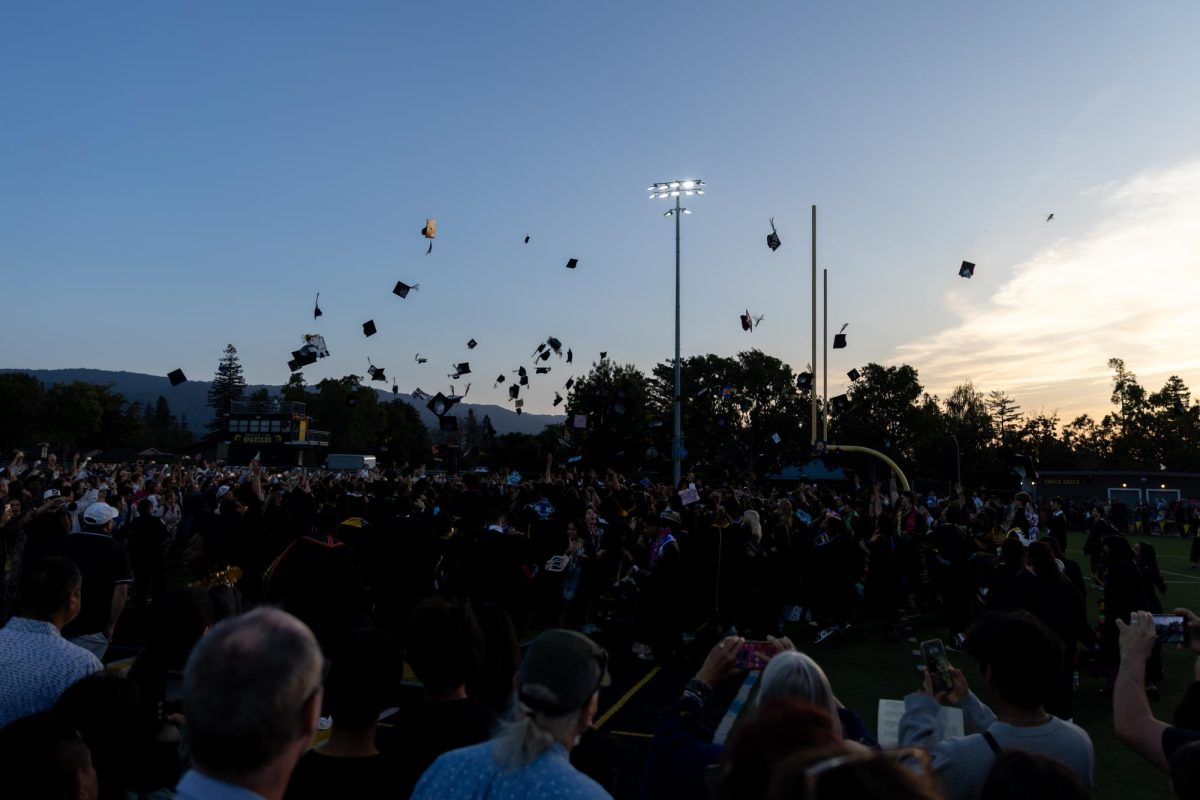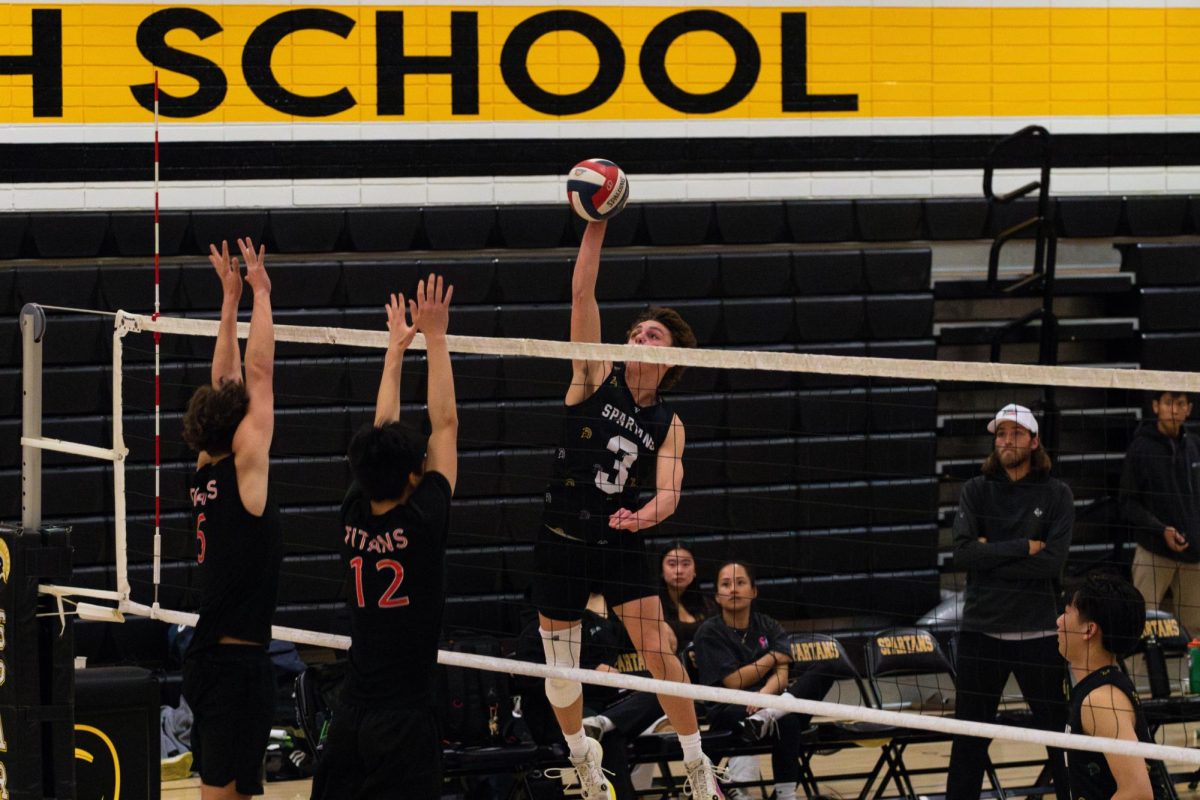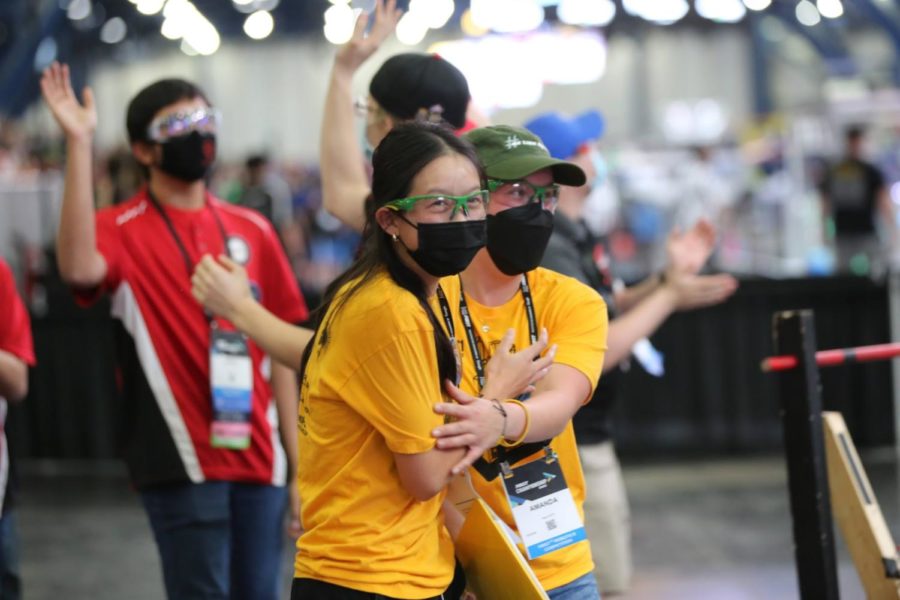Robotics team flies to Houston for world championship
May 13, 2022
Spartan Robotics Team placed second in its division in the 2022 FIRST Robotics Championship competition. The team competed against 75 other teams, and the championship included 454 teams from 43 countries total. The competition took place in Houston, Texas from April 20 to April 23.
“It was probably our most difficult competition because in order to get to champs, you have to qualify by doing well at an earlier competition, so all the robots there were already at a pretty high level,” said junior Marissa Tsoi, the competition president of Spartan Robotics.
At the beginning of each year, FIRST, For Inspiration and Recognition of Science and Technology, releases a new game for robots to compete in. Then, teams have six weeks to design and build a robot. The game for the 2022 season is called Rapid React, which is based on transporting cargo. The cargo is tennis balls that robots launch into a hub to score points. There are red and blue alliances, both composed of three teams. Alliances can also score points when their robots climb up layered bars called a hangar.
“It’s really important that we communicate with each other in order to reach our goals,” Tsoi said. She led the strategy team, which involves negotiating with other teams and forming a plan for upcoming matches. Tsoi said everyone was really engaged and prepared for almost any situation.
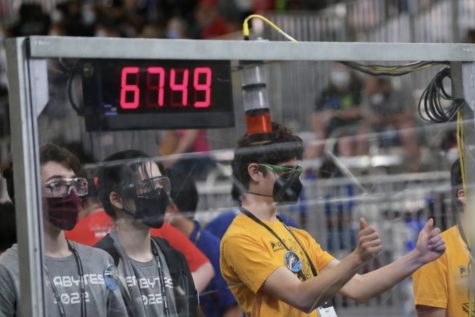
Senior Amanda Backholm, the entrepreneurship president of Spartan Robotics, said the scouting team arrived at the venue at 5:45 to reserve seats even though it opened at seven.
“Everyone was really committed to the team,” she said. Backholm said the team decided to focus on the robot having a fast shooting mechanism rather than being able to climb to the highest level.
“We weren’t able to get all the way up there because we decided to focus on shooting instead of climbing,” Backholm said. “There’s a lot of thinking that goes into the beginning of the year, like what we want to prioritize.”
The team received the Industrial Design Award, which is awarded by judges to the team that has an elegantly and efficiently designed robot. Junior Milind Upadhyay, the software captain, said the team’s robot is “unconventional” because it uses a catapult. The catapult is made from carbon fiber and can shoot in a fifth of a second.
“Our robot is pretty complicated, so many teams from around the world would come and ask questions about it,” Upadhyay said.
Backholm said the robot is called Buckets because of its catapult. The first day of the competition involved practicing for the upcoming matches. The second and third days were for division qualifications, where teams competed in randomly selected alliances composed of three teams. On the final day, teams select alliances and compete until noon, when the winner of each division is announced. The six division winners go on to compete in matches called Einstein finals. The teams on the winning alliance become world champions.
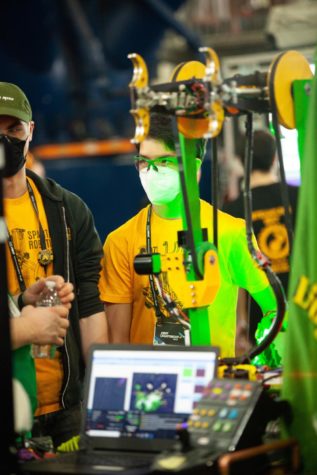
Tsoi said there was no room for error.
During competitions, the team splits into separate groups to perform different tasks. The scouting team collects data on other robots in the competition, which is used for determining strategy and which other teams to ally with. The pit crew is responsible for repairing the team’s robot, and the strike team helps repair allies’ robots. The drive team controls the robot after the 15 second period at the start of every match where robots must move autonomously.
Spartan Robotics usually has two identical robots, one for competitions and one for practice. During the offseason from summer to December, the team builds a third robot as an exercise for students. Upadhyay said building the robot was difficult because of the team’s inexperience. Due to the pandemic, no one had been through a full season, he said.
“We set deadlines in January, and we drastically failed to meet those deadlines, but ultimately we still pulled it together for the competitions. We definitely exceeded our expectations,” Upadhyay said.

